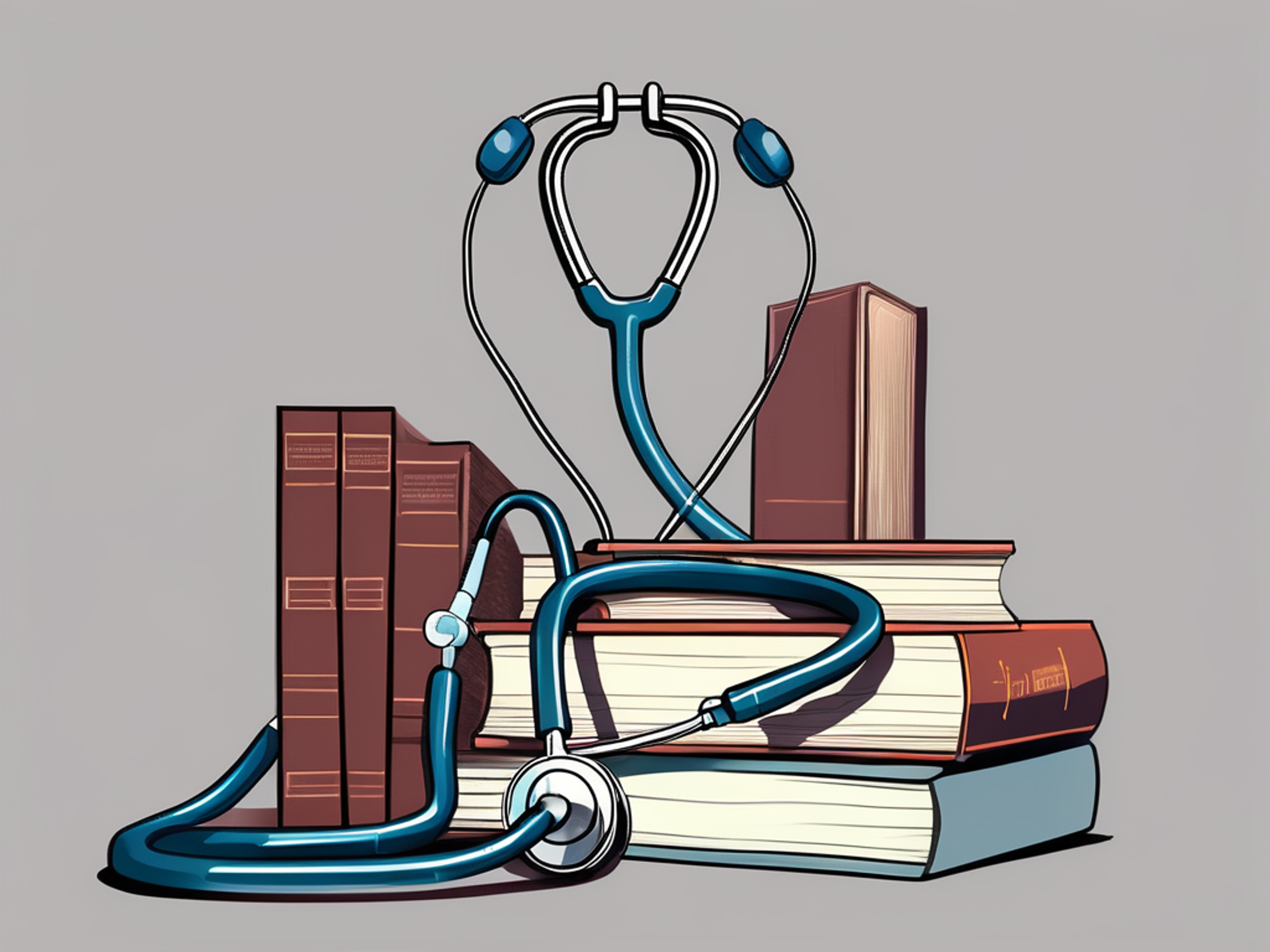How to Become Oncologist: A Comprehensive Guide
If you're interested in becoming an oncologist, this comprehensive guide is a must-read.
Posted April 3, 2025

Table of Contents
Free Event

Featuring Jaspreet K.
Ask Me Anything: Medical School Applications
Starting Friday, April 25
12:00 AM UTC · 30 minutes

Featuring Jaspreet K.
Are you interested in pursuing a career as an oncologist, but not sure where to start? This comprehensive guide will provide you with all the information you need to know about becoming an oncologist, from educational requirements to career opportunities.
What is an Oncologist and What Do They Do?
An oncologist is a medical doctor who specializes in the diagnosis and treatment of cancer. They work with a multidisciplinary team of healthcare professionals to provide individualized care to patients with all types and stages of cancer.
Oncologists use a variety of treatment methods, including chemotherapy, radiation therapy, and surgery, to help patients fight cancer. They also work closely with patients to manage symptoms and side effects of treatment, and provide emotional support throughout the cancer journey. In addition to treating cancer, oncologists also conduct research to develop new treatments and improve existing ones, and educate patients and the public about cancer prevention and early detection.
Education and Training Requirements for Becoming an Oncologist
Aspiring oncologists must complete extensive educational and training requirements. This typically includes obtaining a Bachelor's degree, completing four years of medical school, and completing a residency program in internal medicine. After completing residency, aspiring oncologists must then complete a fellowship program in oncology, which typically takes two to three years to complete.
During their fellowship program, aspiring oncologists gain hands-on experience in diagnosing and treating cancer patients. They work alongside experienced oncologists and learn about the latest advancements in cancer treatment. In addition to their clinical training, oncology fellows also participate in research projects and present their findings at medical conferences. This research experience is important for advancing the field of oncology and improving patient outcomes.
Preparing for Medical School: Tips and Strategies
Getting accepted into medical school can be highly competitive. To increase your chances of success, it's important to start preparing early. This may include taking challenging courses in biology, chemistry, and physics, as well as volunteering or shadowing experienced physicians in a clinical setting to gain hands-on experience.
Another important aspect of preparing for medical school is studying for and taking the Medical College Admission Test (MCAT). The MCAT is a standardized exam that assesses your knowledge of the natural, social, and behavioral sciences, as well as your critical thinking and problem-solving skills. It's important to dedicate ample time to studying for the MCAT, as a high score can greatly improve your chances of getting accepted into medical school.
Medical School Admissions: What You Need to Know
Medical school admissions involve a rigorous application process that typically requires several letters of recommendation, a personal statement, and competitive scores on the MCAT exam. To stand out from other applicants, it's important to have a strong academic record, relevant research experience, and a passion for the field of medicine.
Additionally, many medical schools also value volunteer work and community service. It's important to demonstrate a commitment to helping others and making a positive impact in your community. Admissions committees also look for well-rounded applicants who have diverse interests and experiences outside of medicine. This can include involvement in extracurricular activities, leadership roles, and unique hobbies or talents.
What to Expect in Medical School: Curriculum and Coursework
Medical school is a challenging and demanding program that focuses on biology, anatomy, pharmacology, and other medical disciplines. Students will participate in clinical rotations and gain hands-on experience in treating patients with various illnesses and ailments.
Additionally, medical school also emphasizes the importance of communication skills and professionalism in the medical field. Students will learn how to effectively communicate with patients, families, and other healthcare professionals, as well as how to maintain ethical standards and confidentiality.
Furthermore, medical school often includes opportunities for research and specialization. Students can choose to focus on a particular area of medicine, such as pediatrics or cardiology, and conduct research in that field. This allows for a deeper understanding of a specific area of medicine and can lead to career opportunities in that field.
Residency Programs: Requirements and Application Process
After completing medical school, aspiring oncologists must then complete a residency program in internal medicine, which typically takes three years to complete. To be eligible for residency, candidates must first pass the United States Medical Licensing Examination (USMLE) and obtain a medical license in their state.
Fellowship Programs: Specializing in Oncology
After completing residency, aspiring oncologists must then complete a fellowship program in oncology, which typically takes two to three years to complete. During this time, fellows will gain hands-on experience in diagnosing and treating cancer patients under the supervision of experienced oncologists.
Getting Licensed as an Oncologist: State Requirements and Exams
After completing their educational and training requirements, aspiring oncologists must then obtain a license to practice medicine in their state. This typically involves passing state licensing exams and meeting other requirements, such as continuing education requirements.
It is important for oncologists to stay up-to-date with the latest advancements in their field. Therefore, many states require oncologists to complete a certain number of continuing education credits each year in order to maintain their license. These credits can be earned through attending conferences, participating in online courses, or completing research projects. By staying current with the latest research and treatments, oncologists can provide the best possible care for their patients.
Finding a Job as an Oncologist: Opportunities and Challenges
As the baby boomer generation continues to age, the demand for oncologists is expected to grow. However, competition for jobs is still expected to be high. To increase your chances of success, it's important to network with other professionals in the field and gain relevant experience through internships or volunteer opportunities.
It's also important to stay up-to-date with the latest advancements in oncology and to continuously improve your skills and knowledge. This can be achieved through attending conferences, workshops, and continuing education courses. Additionally, consider specializing in a specific area of oncology, such as pediatric oncology or radiation oncology, to make yourself more marketable to potential employers.
Building Your Career as an Oncologist: Best Practices and Strategies
To build a successful career as an oncologist, it's important to stay up-to-date with the latest advances in the field, network with other professionals, and focus on delivering high-quality and compassionate care to your patients. Developing strong communication and leadership skills can also be highly beneficial in advancing your career.
One of the key factors in building a successful career as an oncologist is to specialize in a particular area of oncology. This can help you to become an expert in a specific type of cancer, which can be highly valuable to patients and other healthcare professionals. Additionally, it can help you to stand out in a competitive job market and increase your earning potential.
Another important aspect of building your career as an oncologist is to maintain a strong work-life balance. The demands of the job can be emotionally and physically draining, so it's important to take care of yourself and prioritize your own well-being. This can include taking time off when needed, engaging in stress-reducing activities, and seeking support from colleagues and loved ones.
Working with Patients: Skills and Qualities of a Successful Oncologist
Working with cancer patients can be emotionally and physically demanding. Successful oncologists possess excellent communication skills, empathy, and a strong sense of compassion. They also have a deep understanding of the complexities of treating cancer and are committed to helping their patients achieve the best possible outcomes.
In addition to these essential qualities, successful oncologists also possess a high level of technical expertise. They are knowledgeable about the latest advancements in cancer treatment and are skilled in using cutting-edge technology to diagnose and treat their patients. They work closely with other healthcare professionals, such as nurses and radiation therapists, to develop comprehensive treatment plans that address the unique needs of each patient.
Another important quality of a successful oncologist is the ability to provide emotional support to their patients and their families. Cancer can be a devastating diagnosis, and patients often experience a range of emotions, including fear, anxiety, and depression. Oncologists must be able to provide a safe and supportive environment where patients can express their feelings and receive the emotional support they need to cope with their illness.
Staying Current in the Field of Oncology: Continuing Education and Professional Development
Oncology is a rapidly-evolving field, with new research and treatment options becoming available all the time. To stay current, it's important to participate in continuing education courses and professional development opportunities. This can include attending conferences, taking online courses, and participating in clinical trials.
Challenges Facing the Field of Oncology Today
While there have been many advances in the treatment of cancer, the field of oncology still faces many challenges. These include rising healthcare costs, shortages of experienced healthcare professionals, and disparities in access to care among different populations.
The Future of Oncology: Advances in Research, Technology, and Treatment Options
Despite the challenges facing the field, there is also great promise and potential in the future of oncology. Researchers continue to make progress in developing new treatments for cancer, including personalized treatment options based on a patient's specific genetic profile. Advanced technologies, such as immunotherapy and precision medicine, are also helping to revolutionize cancer treatment and care.
Becoming an oncologist is a challenging but rewarding path that requires dedication, hard work, and a commitment to delivering the best possible care to patients with cancer. By following this comprehensive guide, you can gain a deeper understanding of the educational and training requirements, career opportunities, and challenges facing the field of oncology today.











